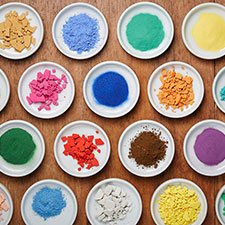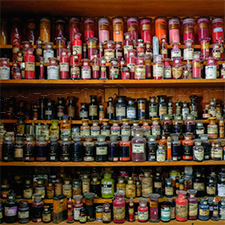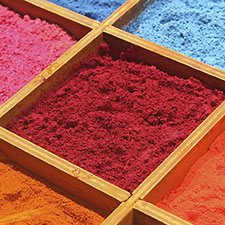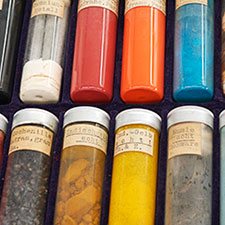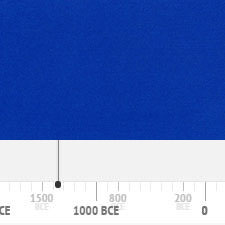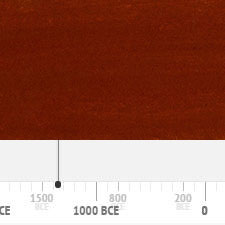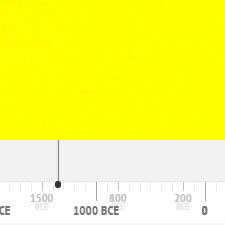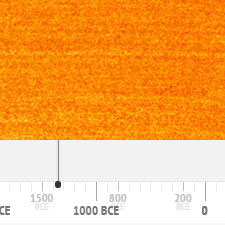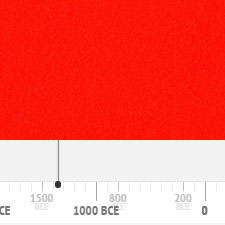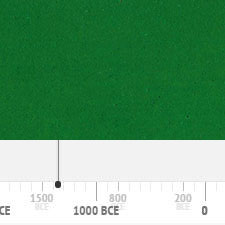Resources: Pigments
Books, Publications, Websites, and VideosResources || Paintings | Painters | Pigments | Scientific Methods | Art Apps | Art Museums Apps
(1) L. Feller, L. Ed., Artists’ Pigments. A Handbook of Their History and Characteristics, Vol. 1, Cambridge University Press, London 1986. Available as pdf from the National Gallery of Art.
(2) Roy A. Ed., Artists’ Pigments. A Handbook of Their History and Characteristics, Vol. 2, Oxford University Press 1993. Available as pdf from the National Gallery of Art.
(3) Fitzhugh, E.W. Ed. Artists’ Pigments. A Handbook of Their History and Characteristics, Vol. 3: Oxford University Press 1997. Available as pdf from the National Gallery of Art.
(4) Berrie, B. Ed., Artists’ Pigments. A Handbook of Their History and Characteristics, Vol. 4, Archetype books, 2007.
(5) Eastaugh, N., Walsh, V., Chaplin, T. and Siddall R., Pigment Compendium: A Dictionary and Optical Microscopy of Historical Pigments, Elsevier Butterworth-Heinemann 2004.
(6) Doerner, M. The Materials of the Artist and Their Use in Painting: With Notes on the Techniques of the Old Masters, Revised Edition, Mariner Books, 1949.
(7) Unknown author, Traité des couleurs servant à la peinture à l’eau, 17th Century, original in Bibliothèque Méjanes [France] (Aix-en-Provence, France).
(8) Orna, Mary Virginia, The Chemical History of Color, Springer Briefs in molecular science: History of Chemistry, Springer Science & Business Media, 2012.
(9) Jones, W. J., Historisches Lexikon deutscher Farbbezeichnungen. De Gruyter, 2013
(10) A. H. Church, The Chemistry of Paints, 4th edition, Seeley London, 1915.
(11) Zagorski, M. (2007, December 19). The Geography of Significant Colorants: Antiquity to the Twentieth Century. George Mason University.
(12) Thavapalan, Shiyanthi et al. “The Value of Colour. Material and Economic Aspects in the Ancient World.” Berlin Studies of the Ancient World 70 (2020),
(1) Barbara H. Berrie, Understanding Art Through Technical Analysis Inferences From Pigment Identification. In MRS Proceedings, Volume 267, 1992 DOI: http://dx.doi.org/10.1557/PROC-267-195 (1992 MRS Spring Meeting).
The Library of Rare Colors
Tom Scott
The Forbes Pigment Collection at the Harvard Art Museums is a collection of pigments, binders, and other art materials for researchers to use as standards: so they can tell originals from restorations from forgeries. It’s not open to the public, because it’s a working research library — and because some of the pigments in there are rare, historic, or really shouldn’t be handled by anyone untrained.
a
a
A Vault of Color: Protecting the World’s Rarest Pigments
(1) Antonino Cosentino, Pigment Checker: collection of 54 swatches of historical pigments that have been applied using gum arabic as a binder on a cellulose and cotton watercolor paper, acids and lignin free.
The pigment collection of Prof. Kurt Wehlte
Kurt Wehlte was the author of the standard handbook on painting materials: Kurt Wehlte, The materials and techniques of painting, New York, Kremer 2004.
The collection of pigments in the image below contains the rare pigment indian yellow (lower row, 4th and 5th from the left) and also the raw material for the preparation of mummy brown (lower row, 6th from the left). Cordial thanks to Stefan Muntwyler for making this photograph possible.
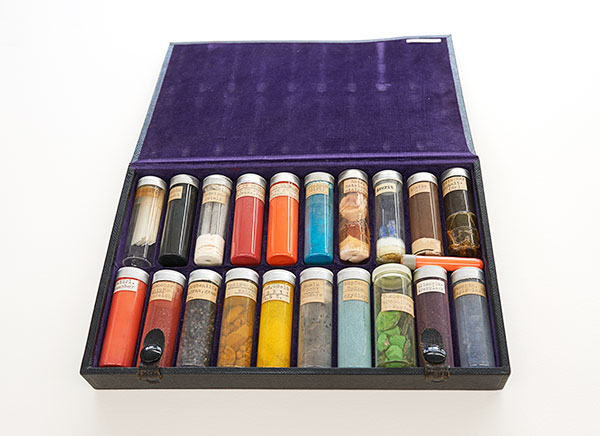
Collection of chromate pigments
All chromate pigments formerly manufactured and sold by Kremer Pigmente. Cordial thanks to Stefan Muntwyler for making this photograph possible.
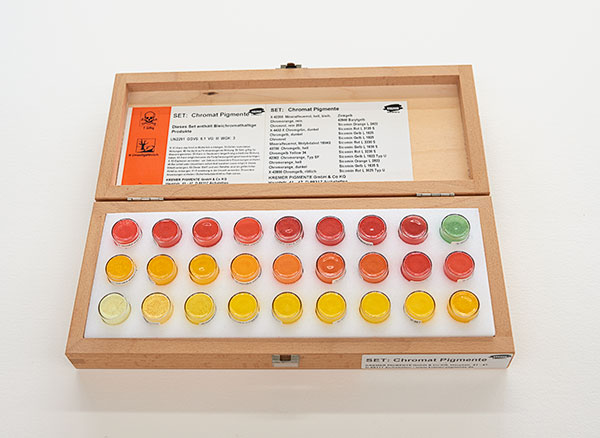
Collection of ultramarine pigments
A collection of 35 different qualities and hues of ultramarine pigments formerly manufactured and sold by Kremer Pigmente. Cordial thanks to Stefan Muntwyler for making this photograph possible.
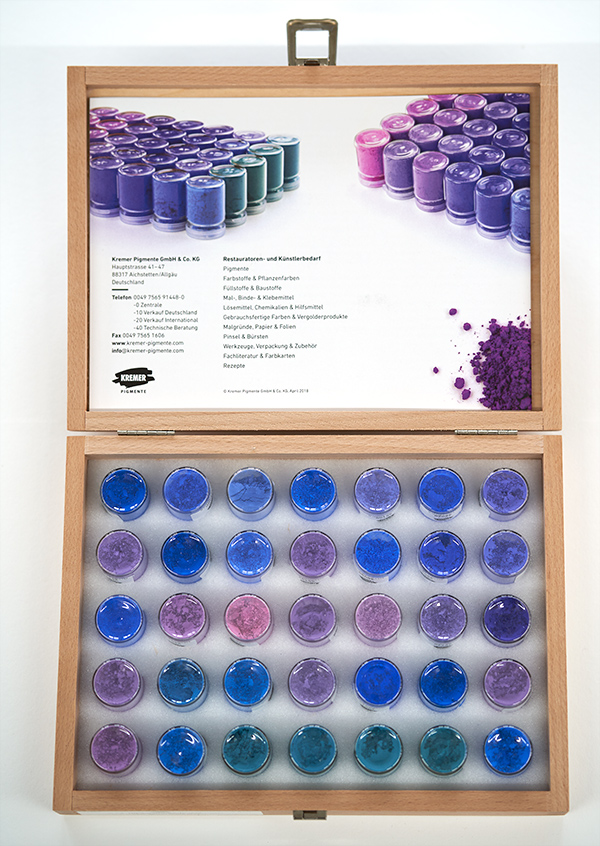
Pigments at ColourLex
The pages on pigments can be accessed in four different ways as well. You can choose pigments according to their colour, according to their type, according to their first date of use, and also according to the elements contained in their chemical structure.
Illustrated timelines for pigments of each colour describe the historical development of the availability of all the pigments featured on ColourLex.

